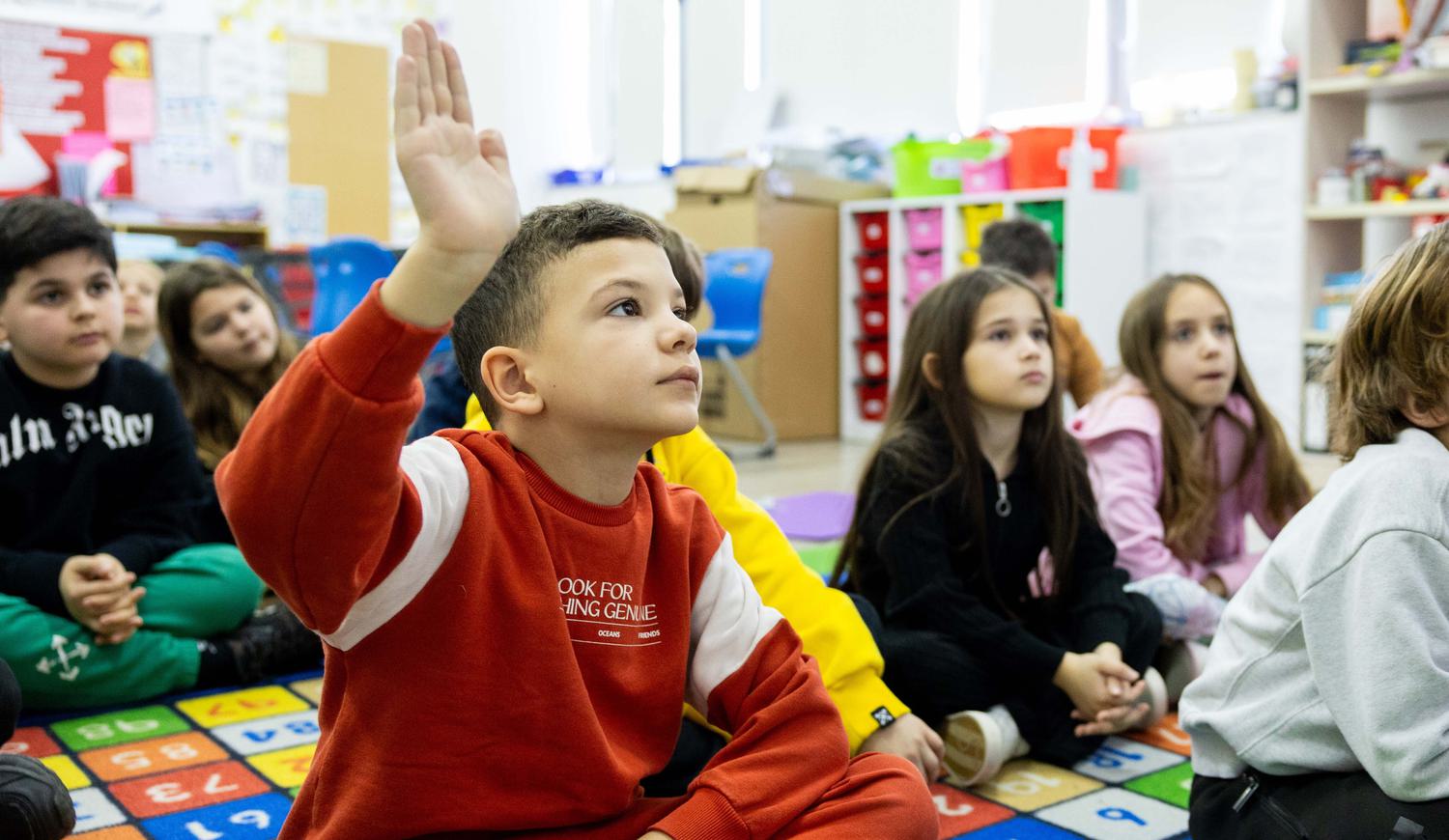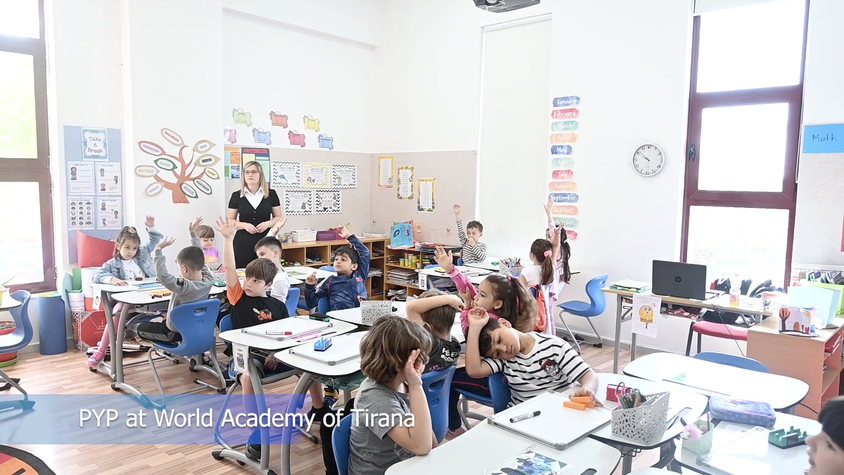The World Academy of Tirana is authorised to provide the IB Primary Years Programme (PYP) (ages 5-11).
The PYP curriculum has an international perspective where we recognize and welcome the diversity of student experiences and backgrounds. A PYP school strives to develop globally minded students who demonstrate the attributes of the IB Learner Profile. At WAT, we believe that by sharing experiences in the classroom setting and beyond, students can develop their awareness and understanding of the experiences of others beyond the local or national community.
At the heart of the programme is a commitment to structured inquiry as the leading vehicle for learning. Six transdisciplinary themes provide the framework for the exploration of knowledge and teachers and students are guided by these themes as they design curricular units for exploration and study. Students explore subject areas through these themes. In doing so they develop an understanding of important concepts, acquire essential skills and knowledge, develop particular attitudes and learn to take socially responsible action. The core curriculum is taught by the class teacher, while other subject such as music, French, Albanian, ELL and physical education are taught by specialist teachers.
After completion of the PYP Programme, WAT students continue to our IB Middle Years Programme (MYP) (ages 11-15).
The Six Transdisciplinary Themes
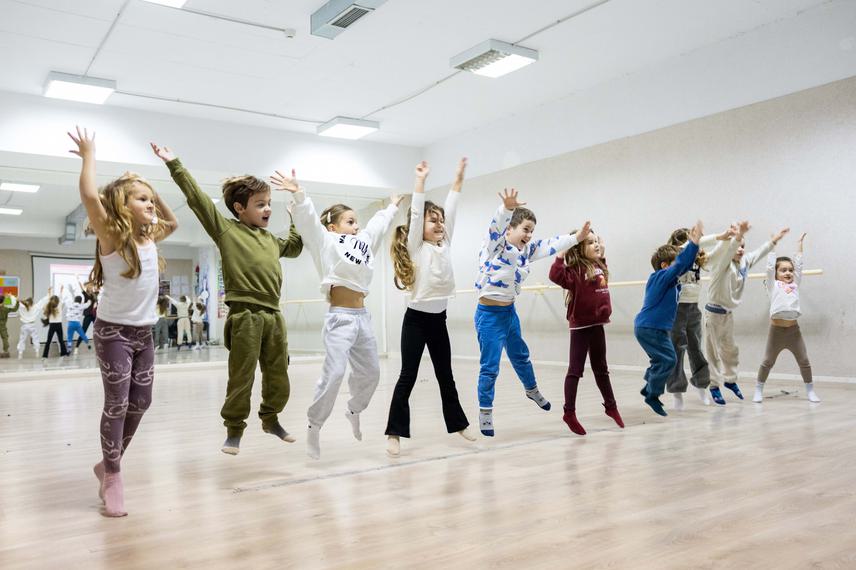
Who we are
An inquiry into the nature of the self; beliefs and values; personal, physical, mental, social and spiritual health; human relationships including families, friends, communities, and cultures; rights and responsibilities; and what it means to be human.
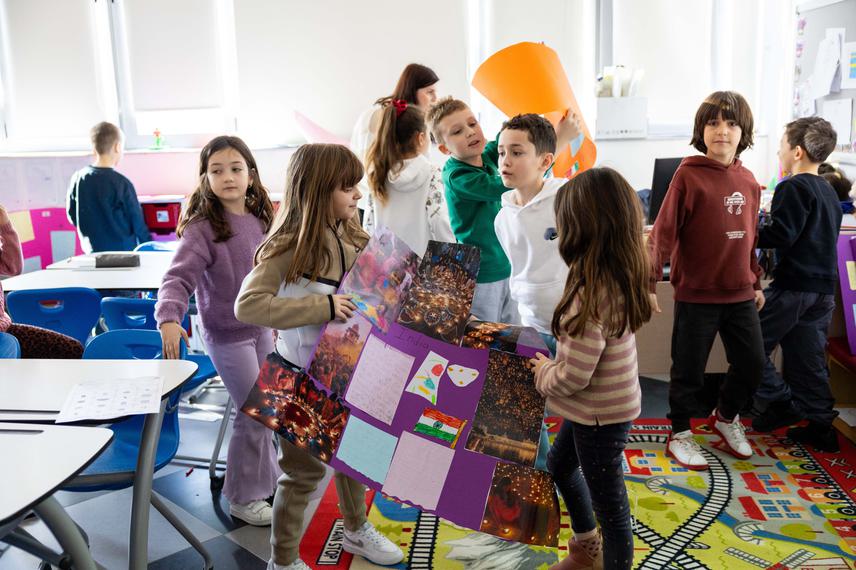
Where we are in time and place
An inquiry into orientation in place and time; personal histories; homes and journeys; the discoveries, explorations and migrations of humankind; and the relationships between and the interconnectedness of individuals and civilizations, from local and global perspectives.
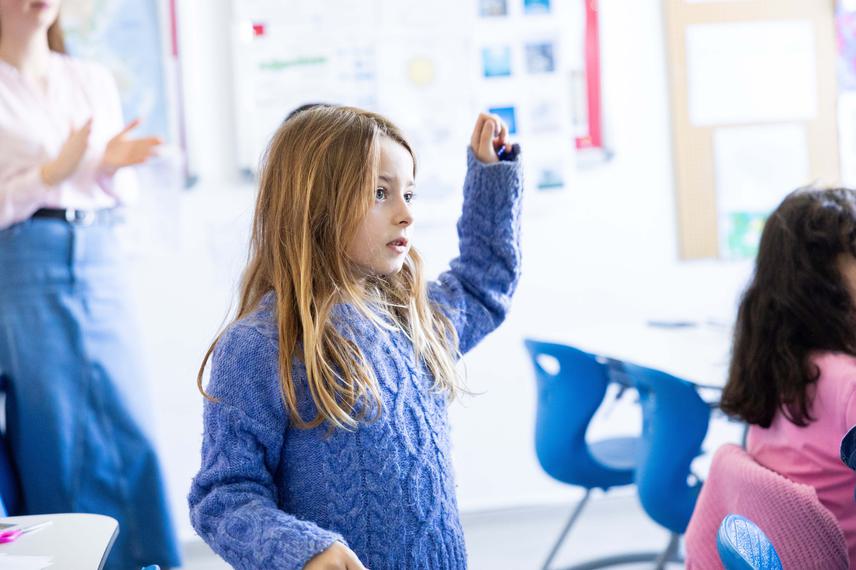
How we express ourselves
An inquiry into the ways in which we discover and express ideas, feelings, nature, culture, beliefs and values; the ways in which we reflect on, extend and enjoy our creativity; our appreciation of the aesthetic.
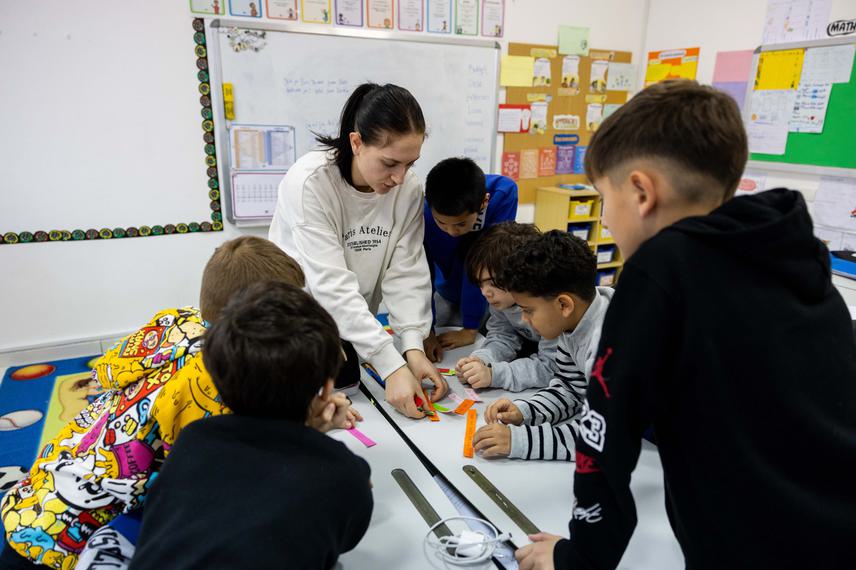
How the world works
An inquiry into the natural world and its laws; the interaction between the natural world (physical and biological) and human societies; how humans use their understanding of scientific principles; and the impact of scientific and technological advances on society and on the environment.
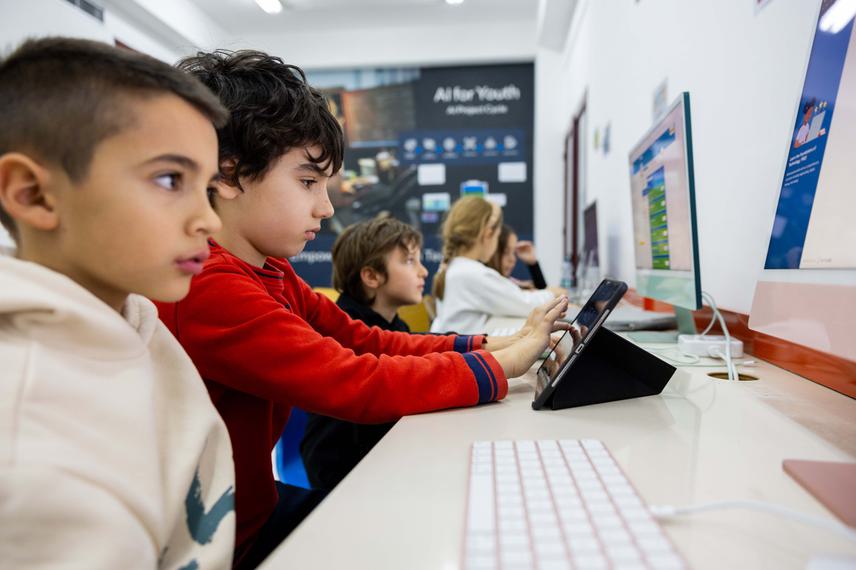
How we organize ourselves
An inquiry into the interconnectedness of human-made systems and communities; the structure and function of organizations; societal decision-making; economic activities and their impact on humankind and the environment.
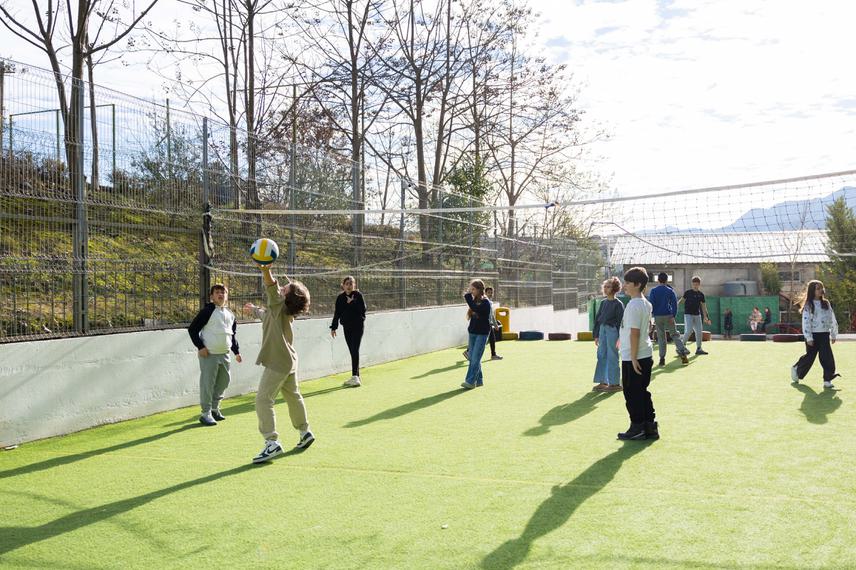
Sharing the planet
An inquiry into rights and responsibilities in the struggle to share finite resources with other people and with other living things; communities and the relationships within and between them; access to equal opportunities; peace and conflict resolution.

